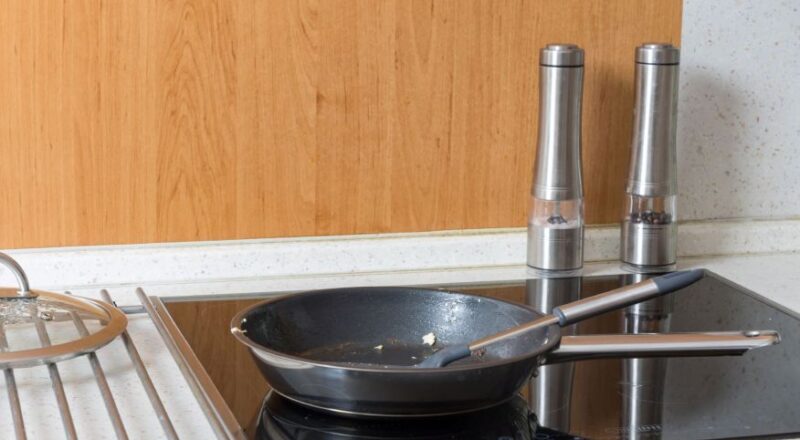The rise of induction cooking has transformed the modern kitchen, offering speed and efficiency that traditional cooking methods struggle to match. But how does cast iron perform on an induction cooktop? And more specifically, how fast does cast iron heat on induction surfaces? These questions are increasingly relevant as more people look to blend classic cookware with cutting-edge technology.

Understanding Induction Cooking
Before diving into the specifics of cast iron, it’s essential to grasp how induction cooktops work. Unlike gas or electric stoves, induction cooktops use electromagnetic fields to heat cookware directly. This method is not only faster but also more energy-efficient. You can learn more about the science behind induction cooking from this How Induction Cooktops Work article.
Why Choose Cast Iron?
Cast iron has been a staple in kitchens for centuries, renowned for its durability and heat retention. While it may take longer to heat initially, it maintains temperature exceptionally well. This makes it ideal for tasks like searing meat or making pancakes.
How Fast Does Cast Iron Heat on Induction?
When it comes to how fast does cast iron heat on induction cooktops, the answer lies in the unique properties of both the cookware and the cooking method. Induction cooktops heat cast iron relatively quickly compared to traditional methods. However, the exact speed can depend on factors such as the thickness of the pan and the power of the induction burner.
Factors Influencing Heating Speed
- Thickness of Cast Iron: Thicker pans may take a bit longer to heat but offer better heat retention.
- Size of the Pan: Larger pans require more energy to heat evenly.
- Induction Cooktop Power: Higher wattage cooktops can heat cast iron faster.
Practical Tips for Using Cast Iron on Induction
For those wanting to optimize their cast iron cooking experience on induction cooktops, consider these tips:
Start at a Low Temperature
Begin cooking at a lower temperature to allow the cast iron to heat evenly. This prevents hotspots and ensures that your food cooks consistently.
Preheat Your Pan
Allow the pan to preheat before adding any ingredients. This step is crucial for achieving the perfect sear or fry.
Monitor the Cooking Process
While cast iron is forgiving, it’s still important to monitor your cooking to prevent burning. Adjust the temperature as needed for the best results.
Benefits of Using Cast Iron on Induction
Combining the traditional benefits of cast iron with the modern efficiency of induction cooktops offers a host of advantages:
Energy Efficiency
Induction cooktops directly heat the cookware, reducing energy loss and saving on utility bills.
Consistent Cooking
The excellent heat retention properties of cast iron ensure that food is cooked evenly throughout.
Versatility
Cast iron is incredibly versatile, suitable for a wide range of cooking techniques, from frying to baking.
Common Challenges and Solutions
Weight of Cast Iron
One downside of cast iron is its weight, which can be cumbersome. However, the benefits often outweigh this inconvenience for many cooks.
Initial Heating Time
Though induction cooktops heat faster than traditional methods, cast iron may still take some time to reach the desired temperature. Patience is key, along with proper preheating.
Cleaning and Maintenance
Proper care is crucial for extending the life of your cast iron cookware. Regular seasoning and avoiding harsh detergents can maintain its condition.
FAQs
Can all cast iron cookware be used on induction cooktops?
Yes, all cast iron cookware is compatible with induction cooktops due to its magnetic properties.
Is cast iron better than stainless steel for induction cooking?
Both have their advantages. Cast iron offers superior heat retention, while stainless steel heats faster and is usually lighter.
How do I clean my cast iron after using it on an induction cooktop?
Clean it with warm water and a soft brush. Avoid soap and ensure it is thoroughly dried to prevent rust.

Conclusion
Cast iron and induction cooktops make a powerful combination, offering efficiency and effectiveness in the kitchen. Understanding how fast does cast iron heat on induction surfaces, alongside practical tips and insights, can enhance your cooking experience. Embrace the blend of tradition and technology for better culinary outcomes.
This article contains affiliate links. We may earn a commission at no extra cost to you.

